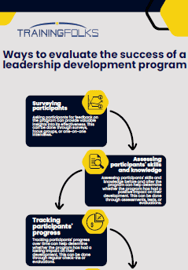What are the Stages of Leadership Development?

Leadership development is the process of giving existing and future leaders the skills to succeed in leadership roles, including skills such as strategic thinking, decision-making, influencing, managing change, talent development, project management, networking, and communication.
A lack of effective leadership development can lead to losses in productivity, unmet goals, low morale, and high turnover. Effective leadership takes time to develop and varies based on the individual's role within the company.
Understanding the stages of leadership development can be useful for evaluating employees and determining readiness for a leadership role.
1. Quiet leadership
Many leaders start their leadership journey without a formal leadership role—they simply lead by example through an entry-level or front-line position. Low-key leaders at this stage are often the driving force behind collaborative projects and put a significant amount of energy into supporting the organization’s mission.
They are committed to fostering the company's culture and creating a more inclusive work environment. In addition to this, they develop strong skills in influencing others and get practice in making effective decisions. They may also work toward internal promotions and actively work on enhancing their knowledge and skills.
2. Front-line leadership
At this stage, leaders are promoted to a team leadership role. With the title of team lead or manager, their leadership abilities have been formally acknowledged, but they continue to handle day-to-day tasks alongside other entry-level employees.
Instead of assuming a low-key leadership style, these leaders play an active role in assigning tasks, providing support to employees in need, and ensuring that employees are aligned with team goals and target metrics. In addition, they are developing and demonstrating their skills in managing successful change, making effective decisions, and influencing others. Front-line leaders also develop subject matter expertise in their line of work.
3. Organizational leadership
The organizational leadership stage occurs when leaders transition from hands-on tasks to people-oriented leadership roles. Representing one of the most challenging development curves in a leader's career, it can be challenging to distinguish front-line leaders who primarily possess subject matter expertise from those who also have strong communication and team management abilities.
Organizational leadership entails stepping away from hands-on tasks and guiding the organization from a broader perspective. At this stage, leaders may be tasked with overseeing multiple teams and connecting senior management to daily operations. Strategic thinking is a crucial skill for leaders at this stage, as it involves the ability to see the organization from a bigger-picture perspective, make informed decisions that align with long-term goals, and effectively guide the organization forward.
4. Cultural and strategic leadership
This leadership stage is characterized by leaders who are removed from day-to-day operations and focus on shaping the organization's culture, vision, and goals. Cultural and strategic leaders possess the skills required to handle the challenges of enterprise leadership, including networking, business strategy, and effective decision-making. They also have a significant impact on every individual in the organization as their actions are closely monitored and define the company's culture.
To be effective at this stage, leaders must possess strong self-awareness and align their behaviors with the organization's values and mission. Additionally, skills such as clear and effective communication, visioning, the ability to make informed decisions, and the ability to identify and develop future talent are essential for success in this role. Leaders at this stage are also responsible for mentoring and grooming the next generation of leaders, ensuring the organization's continued growth and success.
The takeaway
Leadership development is the process of providing individuals with the skills to succeed in leadership roles. This can include skills like strategic thinking, decision-making, influencing others, managing change, talent development, project management, networking, and communication. Without a solid leadership development strategy, an organization may suffer from decreased productivity, unmet performance goals, low employee morale, and high turnover.
There are several stages of leadership development, starting from low-key leaders who lead by example and eventually moving on to front-line leadership, organizational leadership, and cultural and strategic leadership. Leaders at this stage must possess strong self-awareness, align with the organization's values and mission, have clear communication, and the ability to identify and develop future talent. They are also responsible for mentoring the next generation of leaders to ensure the organization's continued success.
If you found this blog helpful and want to learn more,
be sure to download our FREE Infographic:
How to evaluate the success of a Leadership Development Program
Download now!


